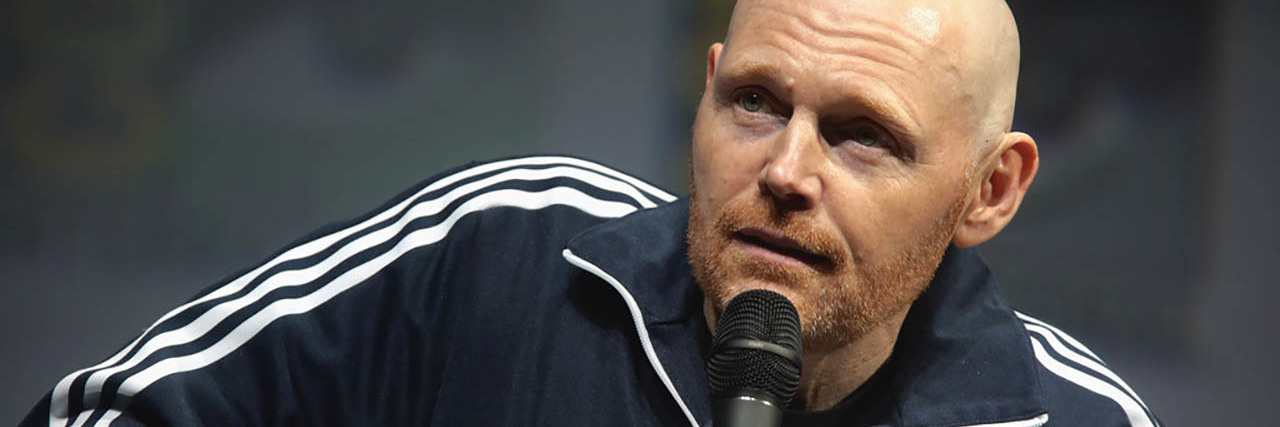Advocates Call Out Bill Burr for Disability Jokes in Netflix Comedy Special ‘Paper Tiger'
Editor's Note
Editor’s note: This article contains language readers may find offensive.
Comedian Bill Burr stirred controversy after the first five minutes of his new Netflix comedy special “Paper Tiger” made fun of the disability community, along with women, sexual assault survivors, people in the mental health community and the LGBTQ community.
“Paper Tiger,” which was filmed in London and released on Netflix on Tuesday, opens with the comedian poking fun at a variety of social issues that have been raised by advocates in many communities, including people with disabilities. Burr lamented the need to “apologize to everybody” before calling out the disability community in the beginning of the special:
This is how screwed up my country is right now. You know Bryan Cranston, right? That dude did a movie. He played a quadriplegic and people gave him shit, being like, ‘Why is there an able-bodied person playing a quadriplegic?’ It’s like, ‘It’s because it’s called acting, you dumb fuck.’ See, if he was a quadriplegic playing a quadriplegic, that’s not acting. That’s just fucking laying there, saying shit that someone else wrote. ‘So tell us, what did you do to prepare for the role?’ ‘Well I dove head-first into the shallow end of a pool when I was 23. I feel like I’ve been preparing for this role for my whole life.’
Many defended and appreciated Burr’s comedy special, including its opening sequence. In an article titled “Bill Burr’s New Stand-up Special Is So Much Better Than Its First 4 Minutes,” Vulture described the special as “furious, resentful troll comedy that plays like a toddler yelling the only swear word they know, desperately begging for someone to punish them.” Others praised Burr’s willingness to joke about “taboo” subjects in current U.S. culture and challenge the status quo.
However, others in the disability community pointed out Burr’s comedy isn’t subversive because as a non-disabled person, he is “punching down” by making fun of people with disabilities — he uses the power of comedy to put down people who are already oppressed as opposed to “punching up” and challenging existing power structures.
“Bill Burr’s comedy special opens by making fun of disabled people, FYI,” disability advocate Imani Barbarin tweeted. “I get it, what is a visibly nondisabled white male to do in the era of #MeToo? Disabled people are the only ones left to make fun of in 2019.”
Bill Burr’s comedy special opens by making fun of disabled people, FYI.
I get it, what is a visibly nondisabled white male to do in the era of #MeToo?
Disabled people are the only ones left to make fun of in 2019.
/s
— Crutches&Spice ♿️ : Rude For A Disabled Person (@Imani_Barbarin) September 12, 2019
Burr particularly takes aim at the disability community’s advocacy efforts for inclusion in popular media. According to the Ruderman Family Foundation, media representations of people with disabilities is one of the most powerful ways to increase positive disability attitudes across the board. Of the characters with disabilities, 95% are portrayed by actors without disabilities. Meanwhile, a new USC Annenberg School for Communication and Journalism report on inclusion in major films found disability representation onscreen dropped to a new four-year low.
Comedy that covers disability and other health conditions can be funny and empowering for people with disabilities. Disabled comedians like Ryan Niemiller, currently a finalist on “America’s Got Talent,” do joke about disability. Niemiller said making disability jokes is a powerful way he turns the tables on audiences to confront their disability biases, a different intent compared to comedians like Burr who “punch down.”
“It’s important for me because disabilities, I still feel, I mean, things have gotten better, but we’re still so underrepresented in places where we should be represented,” Niemiller previously told The Mighty, adding:
There’s still such a stigma to it. And even from doing live shows for the last 13 years. I mean, every time that I’m doing a show, people are like, ‘Oh, we’re not supposed to laugh at this. This is not comfortable.’ And I made them laugh at it and be comfortable with it. So that’s why it’s important. Until this stops becoming a big deal for someone to have a disability but still have normal human things going on in their life and people stop looking at that like it’s weird or crazy or taboo or whatever you say, I’m going to keep talking about it. It’s important to me.
Image via Creative Commons/Gage Skidmore

